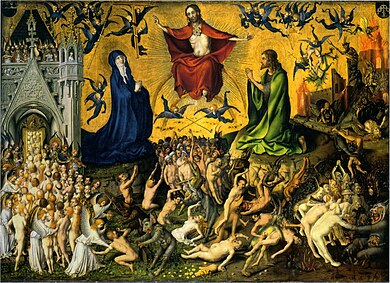Xerxes proposes that there are two competing images of God: for some, God is “unconditional love.” For others, he is a “ruthless judge.”
This is a neat example of the fallacy of the false alterative: it implies that, if you do not believe God is unconditional love, you believe he is ruthless. You are therefore driven to accept that he is unconditional love.
Yet he clearly is not, if by “unconditional love” you mean that he sets no conditions. He does from the very beginning, with not eating the fruit of the tree of the knowledge of good and evil. God’s love is expressed as a series of covenants: he has obligations, man has obligations, and if man does not meet his obligations, punishment can be swift and severe.
Caritas or agape, divine love, does not mean overlooking faults and flaws; any more than married love does. It means keeping contracts, and at all times wanting the best for the other. It also implies respecting the other’s moral agency. A “love” that demands nothing of the other does not. That would be seeing the other as an object. It is the sort of love one might have for a good steak. It is a form of hate.
This is why the Bible says “One who spares the rod hates his son, but one who loves him is careful to discipline him.”
So is God a “ruthless judge”? The flaw here is in seeing justice as in opposition to love or mercy. Perfect justice is the ultimate mercy.













No comments:
Post a Comment